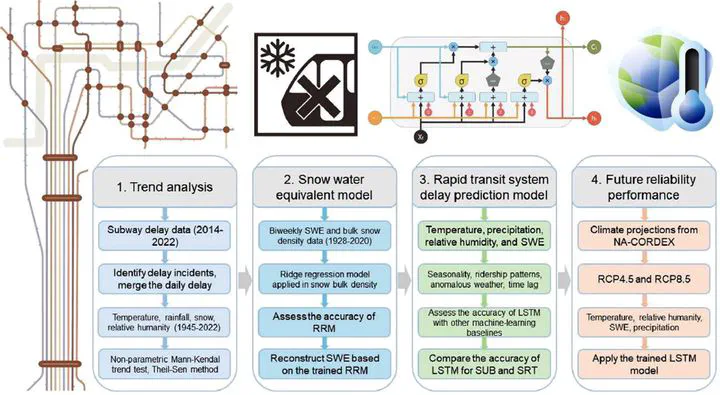Quantifying weather-induced unreliable public transportation service in cold regions under future climate model scenarios
Oct 1, 2024· ,,,,,,,·
0 min read
,,,,,,,·
0 min read
Xuelin Tian
Chen Lu
Ziyang Song
Chunjiang An
Shuyan Wan
He Peng
Qi Feng
Zhikun Chen

Abstract
Climate change, particularly in cold regions, significantly challenges public transportation systems. This study conducts a comprehensive analysis of weather patterns and public transit reliability in the context of climate change impacts. Leveraging advanced modeling techniques, including a ridge regression model for snow water equivalent data estimation and a long short-term memory (LSTM) based on recurrent neural network, the study aims to assess the reliability trends of the rapid transit system under various climate scenarios. The findings reveal that climate change in general increases weather-related delays in the Toronto transit system. The number of short delays decreased accordingly due to changes in winter temperatures but exacerbated long delays as the number of weather extremes increased. The LSTM model performed effectively in predicting delays, especially for the rapid transit system sensitive to weather variations. This study emphasizes the need for robust planning and interventions to increase the resilience of transit systems against climate change and highlights the importance of the integration of climate and extreme weather considerations into transportation management.
Type
Publication
Sustainable Cities and Society